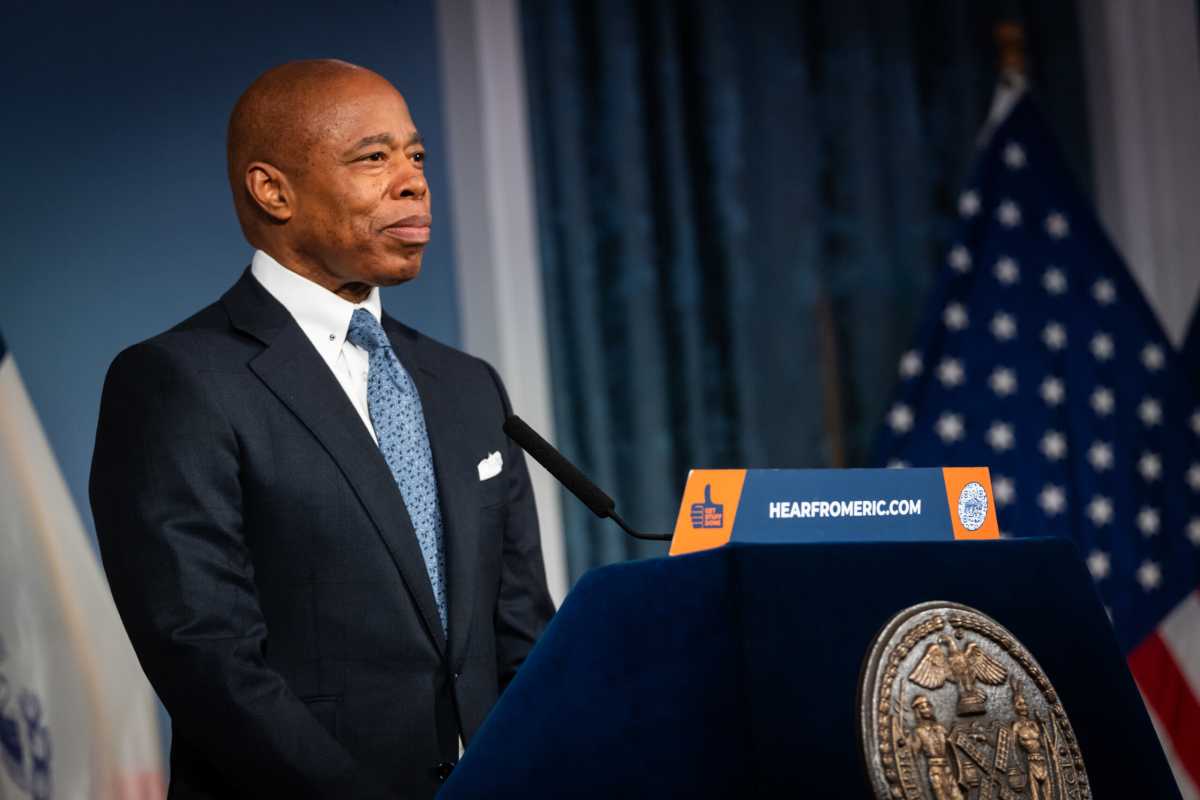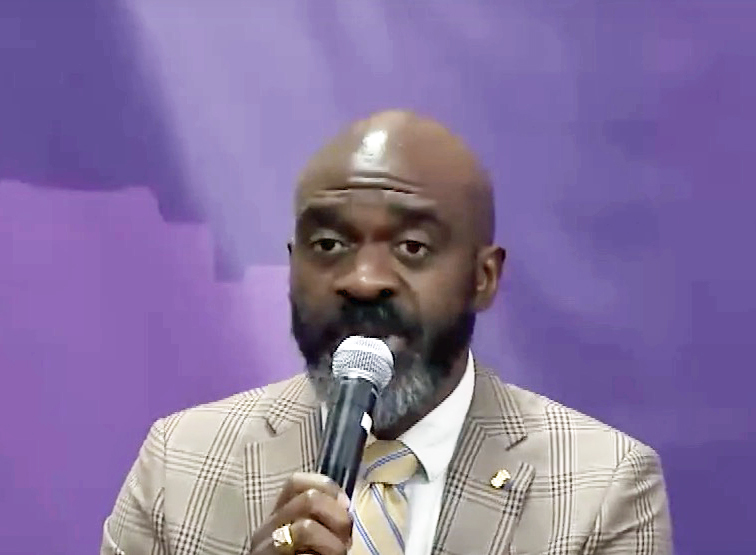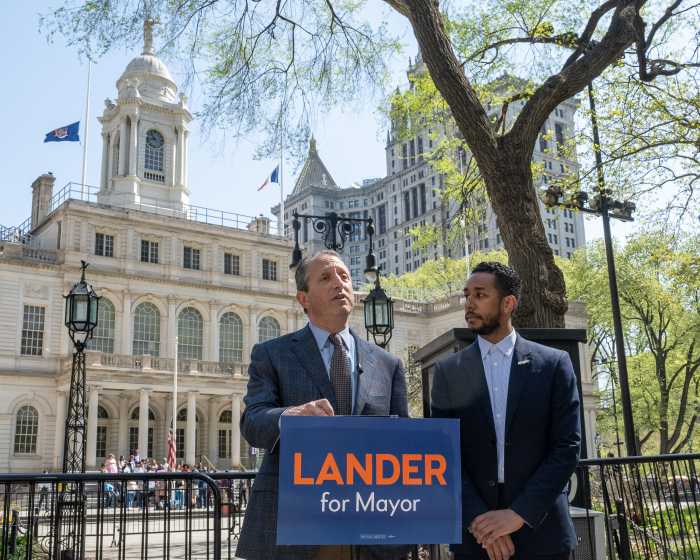In late December, right before city schools closed for the holiday break, the United Federation of Teachers announced it was filing a lawsuit against Mayor Eric Adams, the city, and the New York State Education Department over nearly $2 billion in budget cuts for New York City public schools.
City schools had already faced a $547 million cut back in November, and two more 5% reductions were planned for the education budget in the coming months. The lawsuit alleged the cuts went against a New York State law that prevents “education funding from the temptation of local officials to deprioritize education” and requires “that the City maintain its funding of education at the same level as the prior year and that state funds be used to supplement, not supplant, local funding.”
However, on Jan. 12, Adams said he would reverse a portion of those cuts — as well as cuts to the city’s police, fire, sanitation, and parks departments – due to what the mayor called “strong fiscal management” by his administration. The November cuts were made necessary by the cost of the migrant crisis, Adams said at the time — officials initially estimated that caring for migrants would cost the city up to $12 billion – but those estimates have been revised down to $10.6 billion.
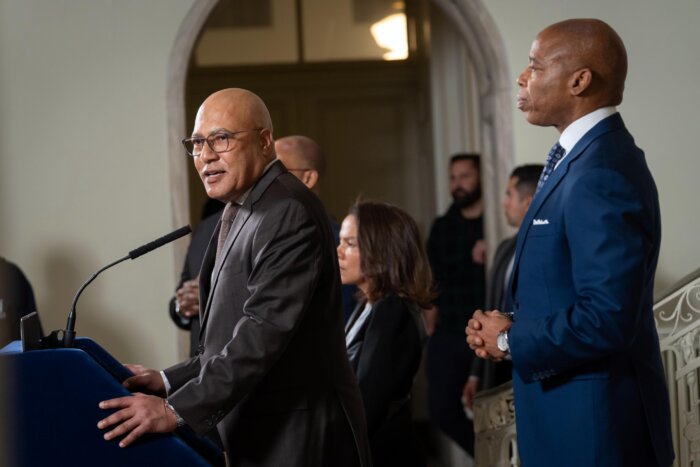
“Through responsible and effective management, we’ve been able to provide care for asylum seekers and balance the budget,” Adams said. “We did not drag our feet or waiver on our values, we made tough but necessary decisions on spending and savings early in the budget cycle.”
Adams said the city would restore $10 million to the Community Schools, as well as funding for programs like for Summer Rising, a popular school summer program that would have lost seats and hours under the previous proposal.
“I also want to emphasize that prioritizing the funding of programs like Summer Rising would not be possible without mayoral accountability,” said schools chancellor David C. Banks This mayor and I do everything that we can to make smart, informed decisions as quickly as we can that will have a positive and immediate impact on our communities all across the city.”
The following week, Adams unveiled his newest $109.4 billion preliminary budget for the coming fiscal year, which lessened budget cuts for the Departments of Education, Social Services, Youth and Community Development and Aging. Rather than cutting 5% of its budget next year, the DOE will have to cut roughly .6% — but that’s still a drop of more than $100 million, in addition to the $600 million cut announced last fall.
When asked if the proposed changes to the budget would impact the lawsuit, UFT spokesperson Alison Gendar said the union would have to wait see how things play out.
“We will review any budget changes,” Gendar said.
Suit says schools are already under-resourced
The lawsuit filed against the initial budget cuts said that 653 public schools — nearly half of the city’s schools — are already reducing their budgets because of a dip in enrollment. It also adds “the mayor’s draconian cuts are as unnecessary as they are illegal. While the law allows a reduction in education spending proportional to a decrease in City revenue, the opposite is expected to occur.”
“We eagerly are embracing our newcomers,” said Karen Alford, UFT vice president of elementary schools and board president of the United Community Schools, a plaintiff in the lawsuit. “But schools are being asked to do more with less. How are we supposed to teach? You can’t keep pulling resources and funds.”
Some said the mayor was placing undue blame on the migrant crisis.
“I think the mayor is mismanaging and scapegoating migrants,” said Jennifer Goddard, president of the Parent Teacher Association at Seth Low IS96K in Bensonhurst, a school set to lose $471,399 from its immediate budget, as per the lawsuit. “[He’s] creating even more xenophobic outrage instead of talking about how asylum seekers are one of many budget needs that demand creative and collaborative solutions.”
Plaintiffs and those from schools mentioned in the lawsuit told Brooklyn Paper they were outraged by recent budget cuts, and said they fear what will happen to their students if resources and programs are continuously taken away. They worry about students’ academic performances after the pandemic, as well as their social-emotional skills and safety.
Beraryu Batyehudah, a teacher at K599 Brooklyn Landmark Elementary School in Ocean Hill, said education can be life or death in the neighborhood.
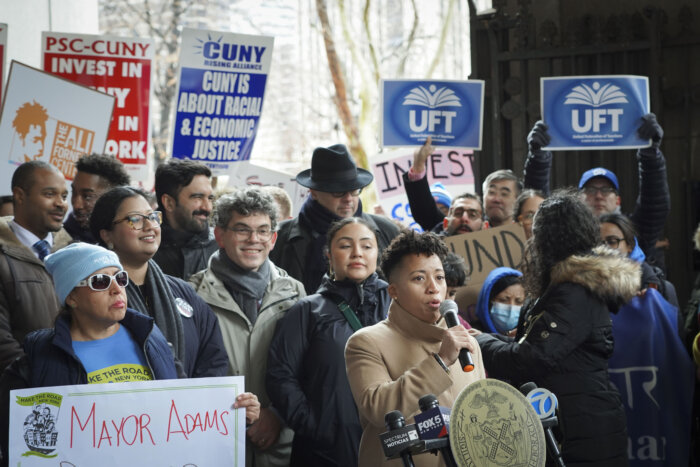
“We’re trying to reduce the chances that they’ll fall into activities that would lead to jail, crime, death,” said Batyehudah, who offered to be named as a plaintiff in the lawsuit because of the impact budget cuts will have on Title I schools. “We’re really trying to build up each of our students. How do you do anything without education?”
Batyehudah said the November cuts could force teachers to work longer hours and do more work, especially if after-school and in-school programs are eliminated from school budgets. Those programs include STEM, tutoring, and even therapy sessions for students with special needs. Batyeudah’s school is considered inclusive since students with certain disabilities learn alongside students who do not. However, Brooklyn Landmark is already short of some special education teachers, and it could worsen if the cuts take place.
Another resource Alford said could be at risk are social-emotional programs set up to help students cope with the trauma from the pandemic. With the budget cuts, those programs could be taken away.
Goddard said education should be off-limits when it comes to budget cuts, which should reflect the priorities of New York City. To her, those priorities are education, health, and well-being.
“What our budget cuts should say about us is that we value certain things, and we’re not going to cut from certain things as much as we might from other places.”
Alford believes that the mayor’s claim of a significant budget deficit may be not accurate, considering the $8 billion rainy day fund. Batyehudah also pointed to funding from the Foundation Aid Formula, which added $4.2 billion in school funding right up to the 2023-2024 academic year. She said the funding should show there is no need for any cuts.
The city defends budget proposals
Amaris Cockfield, Deputy Press Secretary to the Office of Mayor Eric Adams, defended the administration’s decisions.
“The budget presents a stable and fiscally responsible plan to fund our schools,” she said. “Dipping into the city’s reserves to pay recurring costs would be irresponsible, create more uncertainty, and do a disservice to our students.”
The day the lawsuit was announced, reporters asked Adams about the suit – as well as a separate budget-related suit filed by municipal union DC37 — during a press conference. Adams said that UFT president Michael Mulgrew and DC37 executive director Hary Garrido were representing their numbers.
“I look forward to talking with Henry and Michael and try to come to a determination,” the mayor said. “These are smart guys. They know what we’re facing. They know exactly what we are facing. And they are very smart. They understand government. They’ve been there for a long time and they know the challenges we are facing during this time.”
But some are not convinced the mayor knows exactly what many in the city’s public school system are facing.
“There’s really nothing you can say to an individual who’s already made up his mind about what he’s doing,” Goddard said. “Unfortunately, I think when you’re talking lawsuits, now you’re talking things that that get people’s attention. When you’re talking about people’s wallets, that’s when you’re taught that you get their attention. Unfortunately, I don’t think that there’s any rationalizing with this individual.”
“It’s unfair to say the asylum seekers caused this,” Alford added. “It’s painful to public schools and this is like putting a band-aid on. The kids must be our priority.”
In a statement, Department of Education Deputy Press Secretary Jenna Lyle pointed to the city’s fiscal crisis, and explained “funding streams and school level budgeting decisions may vary from school to school.”
“As the mayor and chancellor have repeatedly said, we are in a fiscal crisis, and we are taking every action necessary to limit impact on schools,” she added. “Importantly, through this round of PEGs, all community schools will remain community schools.”
When it comes to these and future changes, Alford and Batyehudah both agreed: “Enough is enough.”


